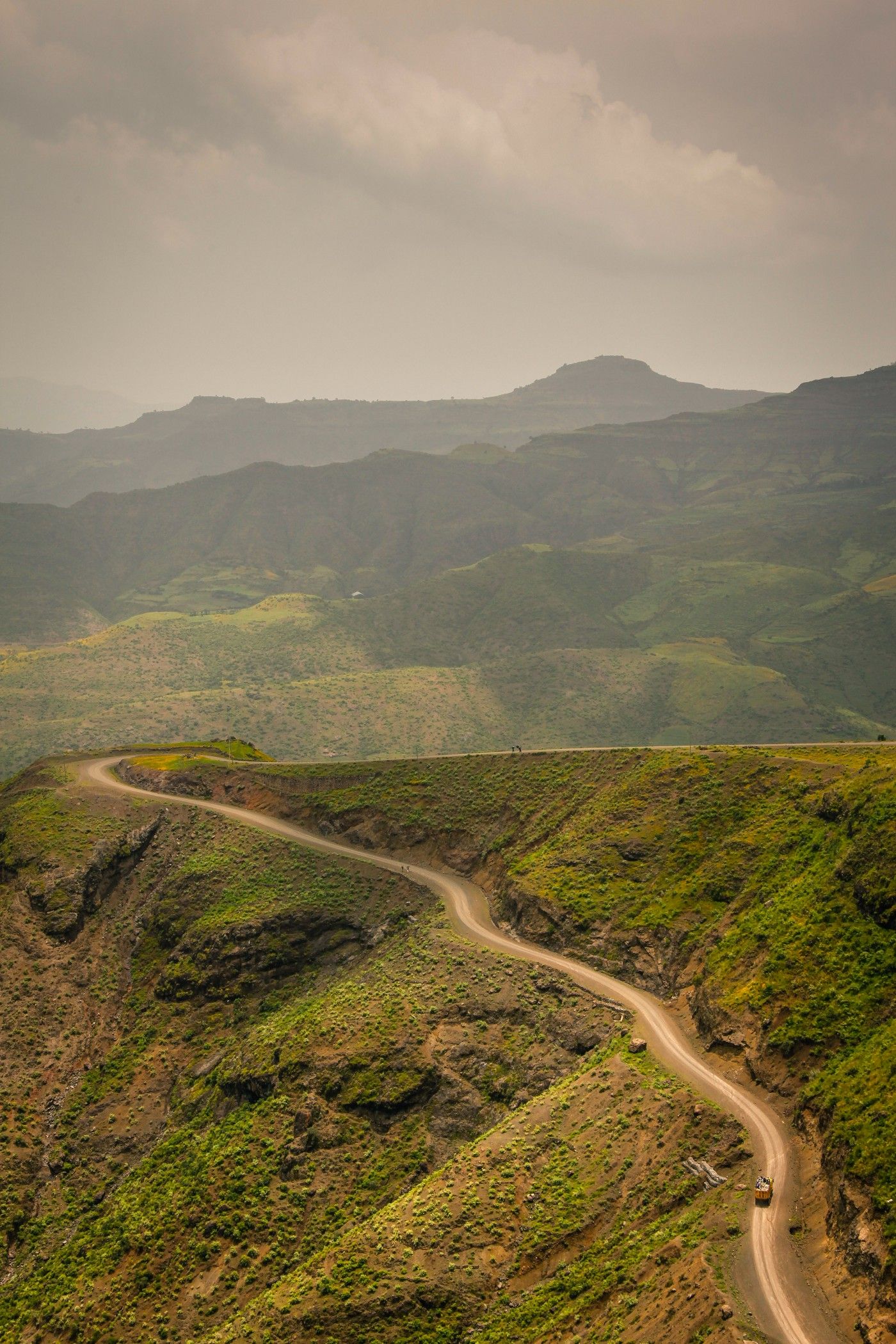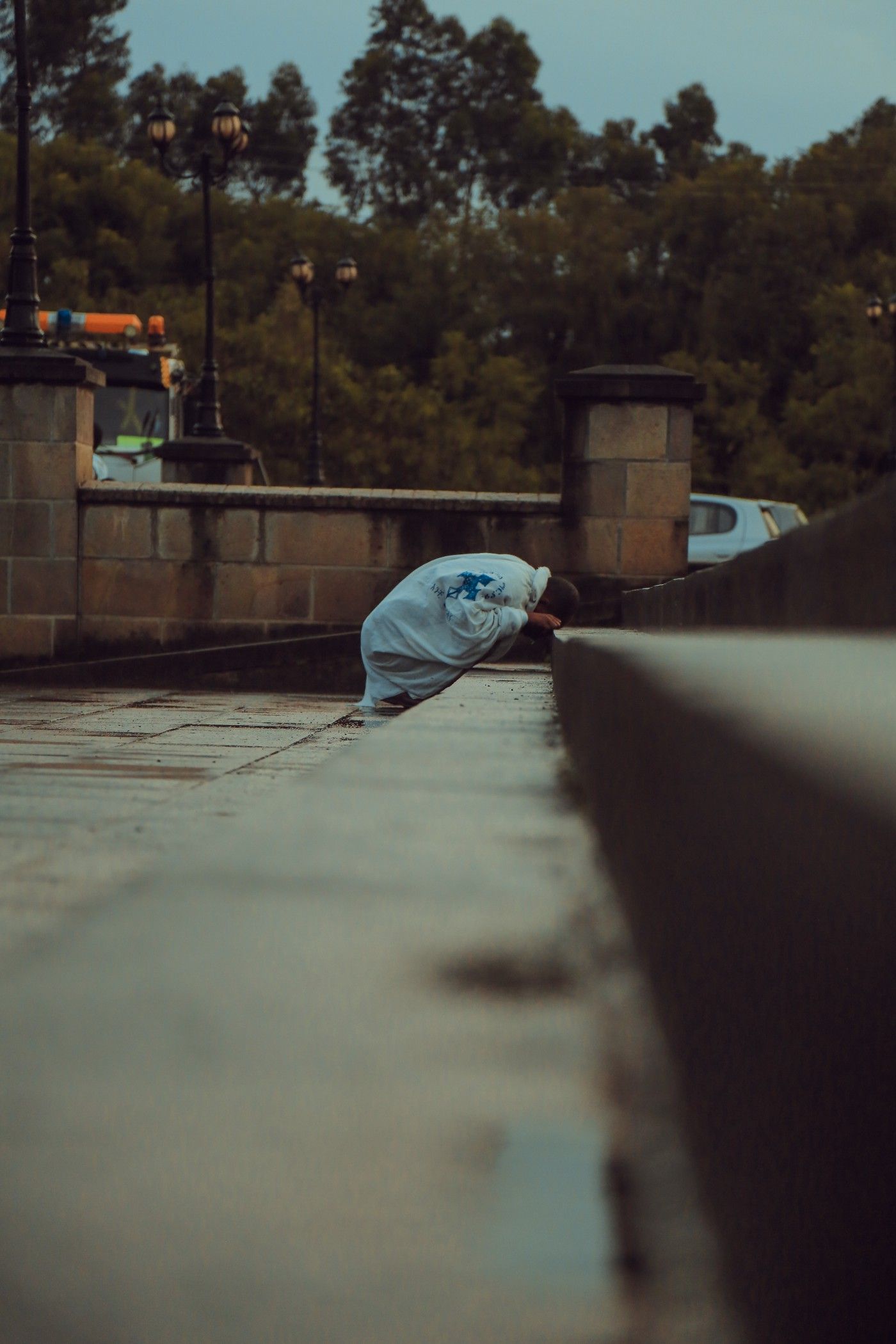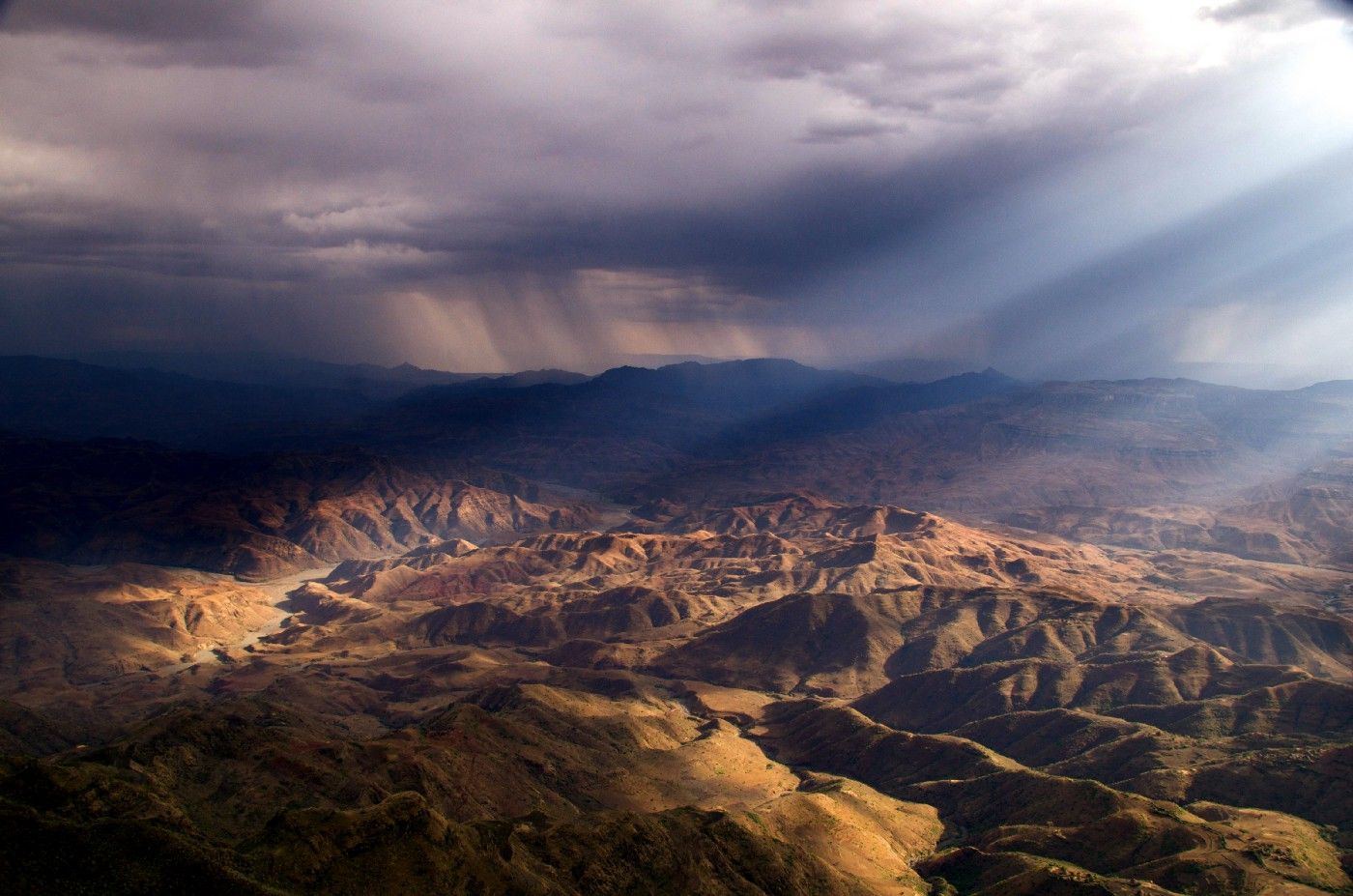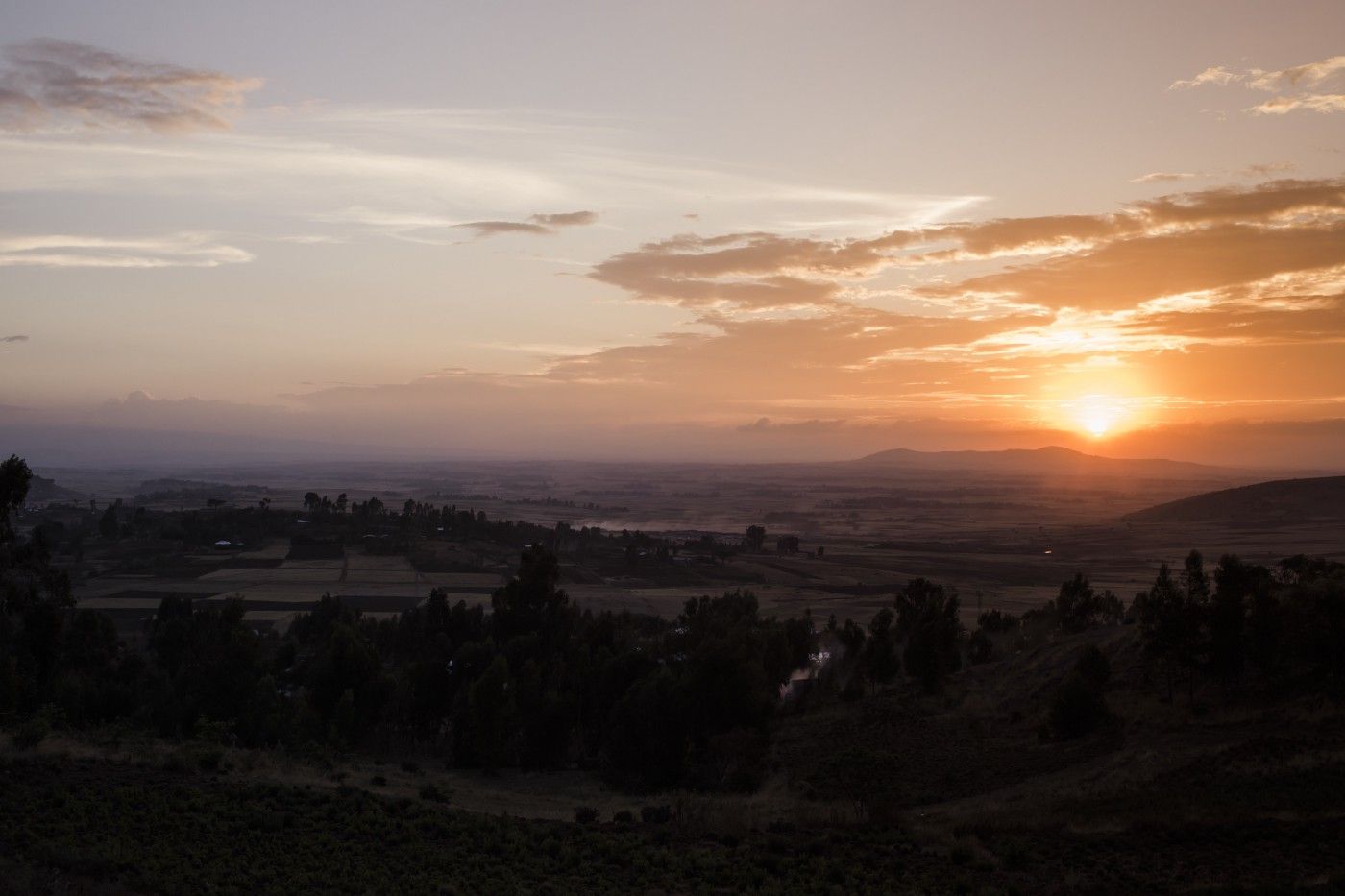What over-tourism is doing to a small jewel full of history
The van bounced along the bumpy road, making room for the small groups of goats and sheep that five- and six-year-olds were herding. Some family members were also making their way home, balancing huge piles of straw- colored weeds on their heads. Off on either side of the road, people were tossing the hay into the air where it caught the late afternoon sun, falling to the ground like sifted flour, where the livestock eagerly ate it up.
The fat gob of spit came out of nowhere. The boy had apparently been saving it up as soon as he saw our car. As we passed him he aimed for my open window, only barely missing me. The mass of spittle landed and slid down the glass, as pure an insult as one human can deliver to another.
I had done nothing to that boy. But I understood.
Lalibela and its surrounding villages are overrun. His way of life and all he knows are threatened by the masses of huge, fancy tourist buildings on the cliff edges. The expensive new hotels, the strain on local resources (my small hotel currently has no water, limited internet and only one dim lightbulb). The loads of tourists who pile off the flights from Addis Ababa and trundle into town. Trample his villages. Stare at him and his neighbors as though they were zoo animals.
In many ways I don’t blame him one bit.
This area, a place of charming hills and thatched circular stone cottages, squared-off one-window government housing and ancient Coptic Christian churches is under siege. I landed here late morning yesterday, eager to see this storied village. What I found was new construction in all direction, nearly fifty percent unemployment, and tourist scalping.
Just like all the local trees have been scalped for firewood or removed to make room for more featureless concrete blocks.
If you want to visit the ancient red rock church in town, these days you have to pony up fifty American dollars. If that doesn’t suck the breath out of your lungs, nothing will. Not only that, but during religious holidays such as Christmas, the local hotels quintuple and quadruple their prices, which have already skyrocketed, to take advantage of our fascination with these eleventh- and twelfth-century structures.
My Lonely Planet is already so out of date (it’s the latest, but prices have blasted to Jupiter since publication) that I have set it aside. I lean on my local guide, to whom I am quite happily paying thirty bucks a day for his expertise. But that doesn’t take into account the very high price of transport ( at least sixty a day) and entrance fees to the churches. By the time you’re done, you’re shelling out around $200 a day or more.
My half-day yesterday cost me $150. I didn’t budget for that. I honestly wasn’t prepared.
These are mostly recent changes. People have seen the desire to visit ancient sites. Like all speculators everywhere, they are doing their best to take as much advantage of the tourist dollar as possible. For my part, I was willing to invest one afternoon visiting far-flung churches which required a considerable drive out of town.
A drive that took me past beautiful scenery, small homes protected by ancient plantings of trees woven into fences, and waving fields of maize in all directions. The countryside here is breathtaking.

The churches far out are much cheaper to visit. Tourist dollars rarely reach these people which is one reason I choose them. The churches, hewn from stone, their steps worn down to nubbins from thousands of feet and centuries of erosion, are living history. The paintings, perfectly preserved in the cool caves in which the churches are built, are a source of great pride. Old men who protect these places have worked here more than fifty years. They take great personal pleasure when they hear a visitor say “beautiful,” with reverence. They may not speak English but they know our meaning.
You and I are still expected to tip someone the equivalent of five dollars for watching over your shoes, as you must leave them outside while you explore.
You and I are expected to tip five dollars to use the toilet on the long climb up to a cave church, which is also lined with ancient women, often blind, who are begging.
The tourist largesse touches a few, but not all. Those in power are sucking the soul of what they can while they can. Most of the local jobs are day labor or poorly-paying restaurant work, which is one reason that it took nearly an hour for me to get a menu at my empty hotel cafe. After that it took another hour to get a small plate of rice. The main roads, as I see everywhere in Africa, lined with entrepreneurs selling Chinese-made cheap plastic goods and home-grown vegetables. Last night I couldn’t find anything at the local markets, and went to bed having had an apple for supper. I didn’t feel like waiting two hours for dinner.

I can’t speak for anyone else but the feeling of ancient power, the sense of being in a sacred place is much diminished by hordes of yakking tourists. They often disrespect the sites, look to peel off or pilfer what they can for their own collections, and fail to offer these remarkable places the respect they deserve. This is ancient Christianity at its most raw, the icons painted a thousand years ago, protected by cool dry air and aging men.
It won’t be long before access to these churches, especially right in town, and to this area will be so expensive that many can’t afford it. Housing for the locals is going the way of all housing for all locals when an area suddenly becomes an “it” place or destination. People are priced out. Jobs pay starvation wages and basics get more expensive, as water and electricity and other necessities are commandeered for people with money.

As I sit here in the cool of 5 am, listening to barking dogs and the sound of mosquitoes whizzing past my ears, I am deeply saddened for this town. The tourist industry touches a few, and gives jobs to guides like the young man who is meeting me today at 8 am. One of a family of eight, he lives with his aging parents. At 32, he can’t yet marry, for he is responsible for their upkeep and for taking care of two brothers who can’t find work in town. He wants to marry and have kids, but he can’t afford it. That, and tradition demands that he look after his retired folks, who no longer farm land, and who depend on his small guide’s salary to feed far too many.
As someone who grew up in a small Central Florida town right about the time Big Walt was buying up masses of cheap acreage for what would eventually become Walt Disney World, I have seen what over-tourism does. Many of us live it these days. AirBnB has brought hordes of tourists right into our private neighborhoods, peering into our windows and marching unbidden over our lawns.
I’d spit at them too.
I don’t have an answer. It’s way over my pay grade. All I can do is choose to visit where what I spend has a far greater chance of benefiting those who desperately need it rather than the machine that devours prime land, making that land and those views off limits to the people who have lived here for centuries.
Today I am skipping the churches and going for a long horseback ride. With any luck the money I spend will go to a farmer and his family. I hope the spit I experience today comes from the gathering clouds that promise a touch of cool rain. At least I’ll feel blessed by it, in a place as old and sacred as the cradle of humanity, a mix of our worst and best.

Comments powered by Talkyard.